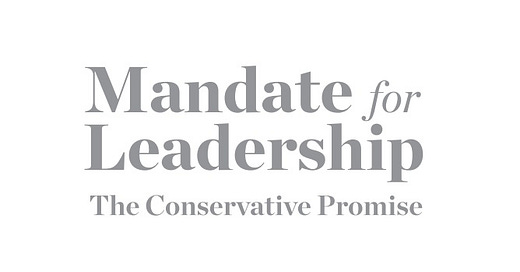Project 2025: Housing
What Does the 2025 Presidential Transition Project Recommend for the Department of Housing and Urban Development?
What Does the 2025 Presidential Transition Project Recommend for the Department of Housing and Urban Development?
“Wholly aside from reforms that would require legislation, the next Administration must ensure that key political appointees are able to acquit themselves as change agents to execute administrative reforms. Otherwise, whether because of a sheer lack of skill and expertise or simply a lack of will and philosophical alignment with reforms, staff may frustrate the efforts of committed political appointee staff and leadership to execute substantive administrative reforms. To achieve the policy and regulatory reforms outlined in this chapter, political appointees must be carefully placed in positions that reflect not only technical, market/industry, and operational expertise, but also a shared will and commitment.”
“Housing supply does remain a problem in the U.S., but constructing more units at the low end of the market will not solve the problem. Investors and developers can deliver at more efficient cost new units that will allow for greater upward mobility of rental and ownership housing stock and better target increased construction of mid-tier rental units. Further, and more fundamental to the housing supply challenge in markets across the U.S., localities can consider revising land use, zoning, and building regulations that constrict new housing development, adding time delays and costs that impede construction. Federal housing policy should get out of the way where possible and minimize the distortive impact that stimulating greater demand through loose lending can have in driving up housing prices for households that are looking for affordable entry into the housing market.”
“Congress should prioritize any and all legislative support for the single-family home. Homeownership forms the backbone of the American Dream. The purchase of a home is the largest investment most Americans will make in their lifetimes, and homeownership remains the most accessible way to build generational wealth for millions of Americans. For these reasons, American homeowners and citizens know best what is in the interest of their neighborhoods and communities. Localities rather than the federal government must have the final say in zoning laws and regulations, and a conservative Administration should oppose any efforts to weaken single-family zoning. Along the same lines, Congress can propose tax credits for the renovation or repair of housing stock in rural areas so that more Americans are able to access the American Dream of homeownership.”
“Repeal climate change initiatives and spending in the department’s budget request. Revise regulatory and subregulatory guidance, where applicable within statutory authorities, that adds unnecessary delay and costs to the construction and development of new housing and has been estimated to account for about 40 percent of new housing unit costs in multifamily housing.”
“Today, the American family is in crisis. Forty percent of all children are born to unmarried mothers, including more than 70 percent of black children. There is no government program that can replace the hole in a child’s soul cut out by the absence of a father. Fatherlessness is one of the principal sources of American poverty, crime, mental illness, teen suicide, substance abuse, rejection of the church, and high school dropouts. So many of the problems government programs are designed to solve—but can’t—are ultimately problems created by the crisis of marriage and the family. The world has never seen a thriving, healthy, free, and prosperous society where most children grow up without their married parents. If current trends continue, we are heading toward social implosion.”


